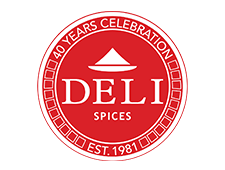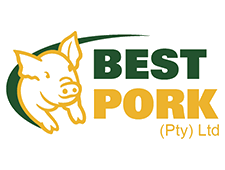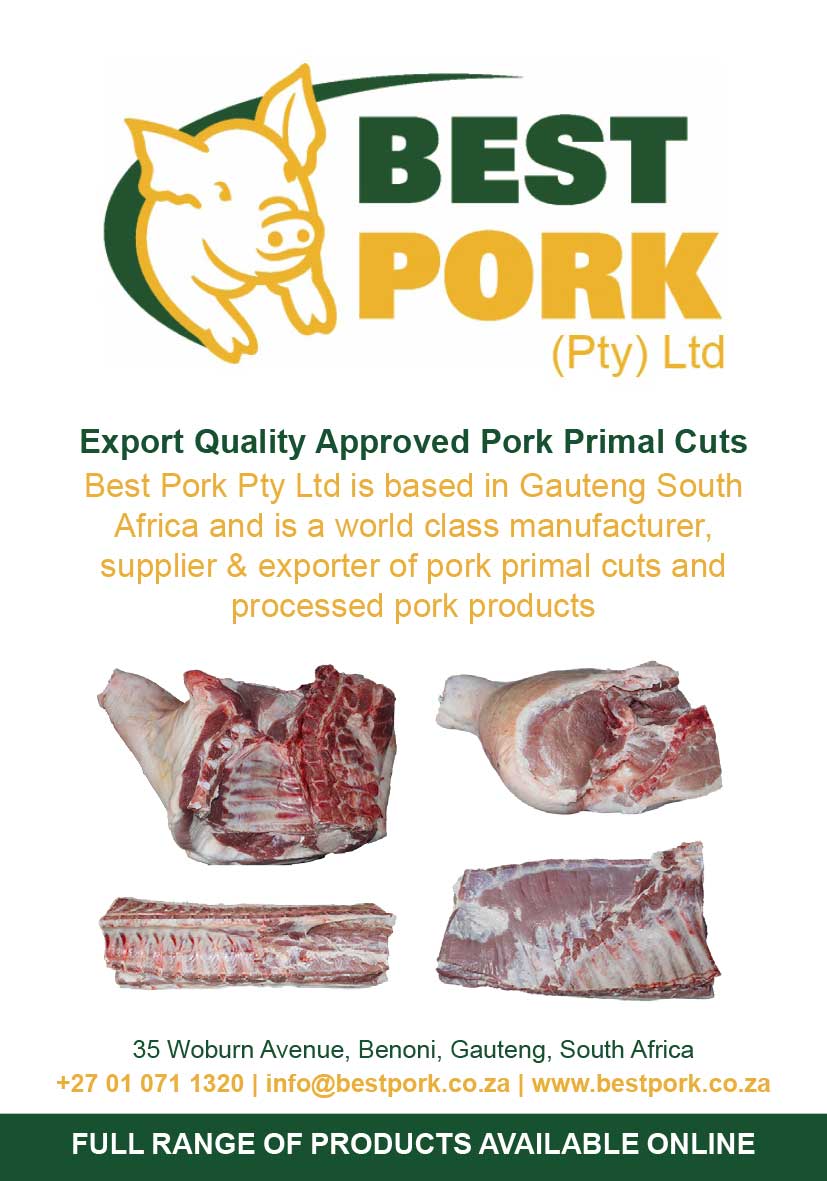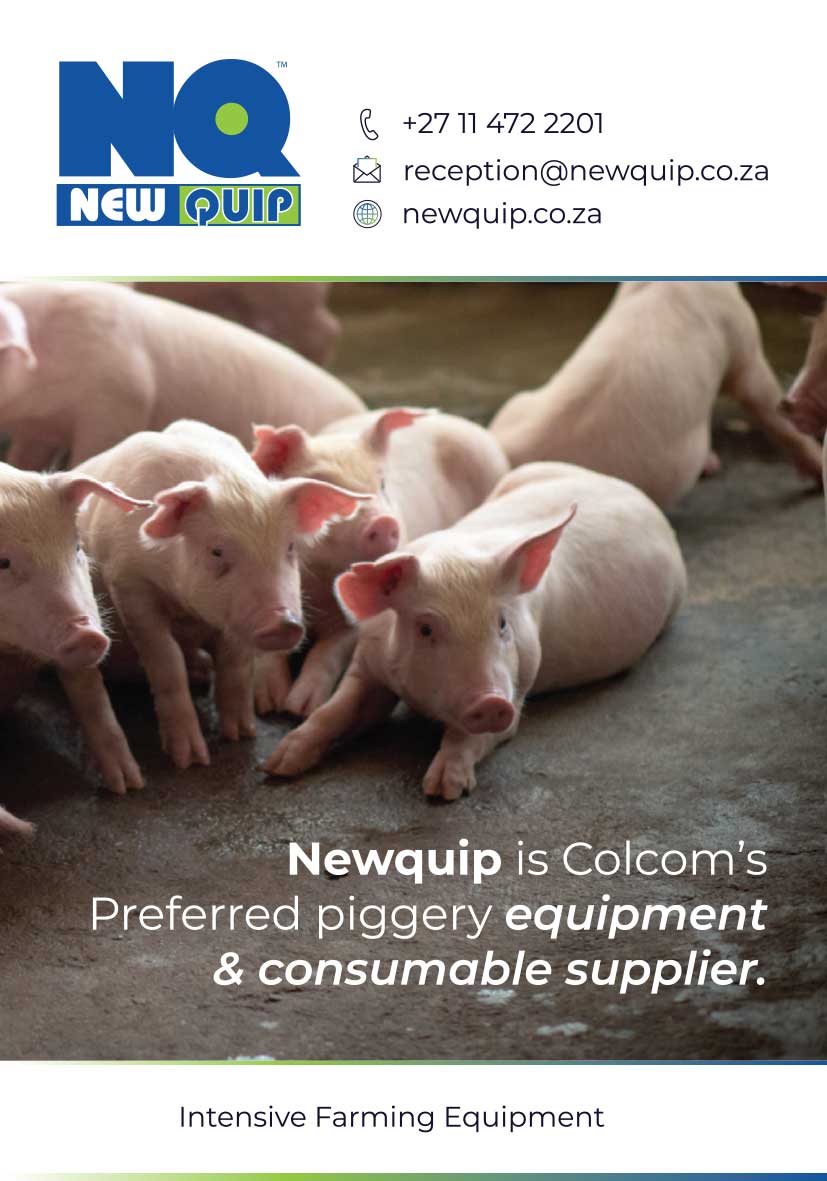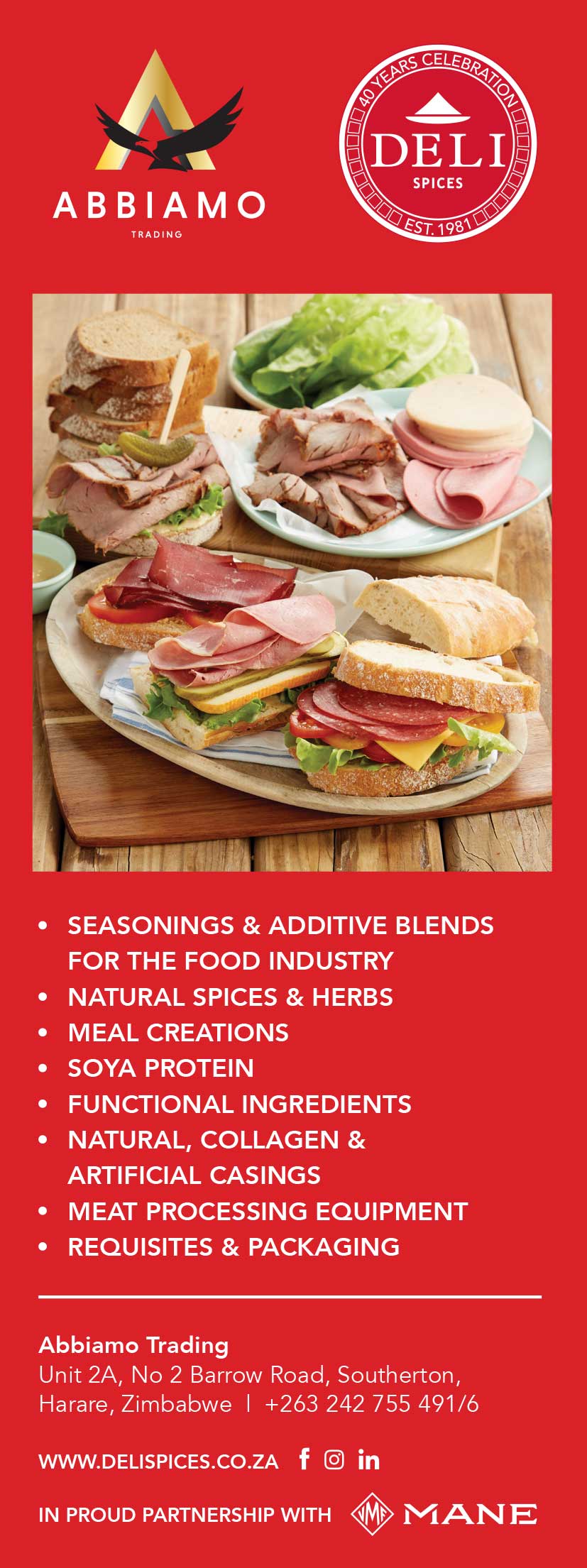80-Year-Old Colcom Looking Forward to Bright Future
INDUSTRY FOCUS: AGRICULTURE
Colcom has developed a strong blueprint for operating a quality-focused food production business in a challenging economic climate. As Zimbabwe’s leading producer of pork products, this important organisation continues to grow organically and sustainably. CEO Dino Tumazos tells Enterprise Africa more about ambitious growth plans.
In Zimbabwe, major economic threats (or opportunities) are creating unique and open spaces for private sector success. Traditionally an agricultural nation – once labelled the ‘breadbasket of Africa’ – Zimbabwe has struggled with economic challenges for many years, but beyond the headlines, in the country’s busy business community, there is much happening as companies work hard to meet strong demand for products and services from a growing local market.
According to the World Bank, Zimbabwe is home to excellent human capital, comparable to that of upper-middle-income economies in Sub-Saharan Africa and abundant mineral and natural resources that, if well managed, can support the country’s development objectives.
The Food and Agriculture Organisation of the UN further highlights the country’s immense natural-agri resources where 33.5 of 39 million hectares are used for agricultural purposes and where approximately 70% of workers are employed in agriculture. As a percentage of GDP, agriculture represents more than 8% of Zimbabwe’s offering, and there are many that would like to see this grow to become prominent once again.
Dino Tumazos, CEO at Colcom – a leading producer of fresh and processed meat products – is under no illusions about the challenge of building a more resilient agricultural sector, but he is optimistic thanks to eight decades of brand history and a deep understanding of the local market.
Enterprise Africa asked the CEO to explain about the importance of Colcom’s position in Zimbabwe in the year of its 80th anniversary.
“Colcom is a division of Innscor Africa Limited,” he begins. “The Colcom division has two major operations; Triple C Pigs and Colcom Foods. Triple C, the sole supplier of pigs to Colcom Foods, employs 660 staff and produces an average of 2,500 pigs a week from five farms situated with a 100km radius of Harare. Colcom Foods is situated in the Workington light industrial area of Harare and comprises the abattoir, processing facility, distribution operations, our flagship Colcom Shop and administrative functions.
“This operation is fuelled by 790 staff and is complemented by a 650-ton capacity cold store in Ruwa as well as a retail outlet and Distribution Centre in the eastern border town of Mutare. For the FY ending June 2022, Colcom posted revenue figures of $56.7 million, coming largely from the company’s key categories: Fresh pork (45%), ready-to-eat Colcom pies (16%), smoked and cooked sausages (11%), polonies (15%), bacon and ham, frozen uncooked sausages and cooked meats making up the remainder.
“Our pig production represents 58% of the pigs slaughtered through government approved abattoirs each week. We sell approximately 50% of the pigs we receive into the market directly as carcasses,” says Tumazos, adding that the company boasts 65% of the carcass market and 80% of the market in remaining categories.
EXTRAORDINARY PLACE
Despite the strength of Colcom’s infrastructure, the company is still exposed to the unpredictable nature of Zimbabwe itself. After overcoming the Covid-19 pandemic with no major shutdown or decline, the company remains cautiously hopeful about the immediate future. An experienced team, and a strong local workforce provides a robust base for growth.
“Zimbabwe is an extraordinary place,” highlights Tumazos. “Economic conditions are volatile at best. During periods of relative stability, demand for product is insatiable. When it turns, demand seems to simply dissolve. Management remains agile to respond to either condition in the most practical way. It’s far from ideal but it is how we have learned to operate.
“Based on current per capita consumption, we see huge opportunity for local growth,” he adds, highlighting encouraging trends in the pork industry, known for high levels of protein, iron, and a range of vitamins. “Our strategy starts with producing the pigs. It is capital-intensive but the only way we see to grow the market is to grow the pigs. As pig production is all in-house, reliability and consistency are managed internally.”
Thanks to this system, quality is overseen without the worry of relying on external players. If more can follow the Colcom example then growth of the industry as well as growth of the country’s wider agriculture space can be reignited.
“Despite its mineral wealth, Zimbabwe has always been an agriculture-based economy,” reminds Tumazos. “The failure of agriculture over the past 20 years (reasons for which are well-documented) has contributed immensely to the slow growth of the economy. To an extent, that trend has started to reverse over the past couple of years with more of the key raw materials for animal feed, on which we are heavily reliant, being produced locally.”
TRUSTED BRAND
“We pride ourselves in having a brand that has stood the test of time. The Colcom brand name is trusted, valued and respected by the Zimbabwean consumer,” says Tumazos. To continuously strengthen the brand, the business regularly invests in independent market research to gauge brand perceptions and understand evolving consumer behaviour. In a market like Zimbabwe, where more than 50% of population is still not digitally connected, this is challenging but essential. “This research guides product development and enables us to develop adaptive marketing strategies that are on the pulse of the market to keep us relevant.”
Tumazos details that, even with ongoing branding efforts and an ever-changing range (currently home to more than 160 SKUs), there are a number of non-negotiables embedded in Colcom culture. “We don’t compromise on quality and we don’t compromise on food safety,” he says. “We produce all of the pigs we sell on our own farms. We only buy raw materials from known and trusted sources. There is an element of trust associated with our brand in the products we sell. We have developed our route to market to ensure nationwide availability of our products while maintaining affordability for our customers and our consumers is high on our priorities.”
Recent new additions to the Colcom portfolio include ranges suitable for the informal sector locally – a new 110g polony, Russian-style smoked and cooked ready-to-eat sausages in cater pack formats, a new Country-style Burger, a boneless rib burger in both retail and cater pack formats, and a new cooked pet food product.
FUTURE GROWTH
Going forward, Colcom has set its sights on industry domination and will employ new technology as well as fresh bricks and mortar investment to help it meet demand while becoming more efficient.
“We have committed to the purchase of a property on which a piggery has been partly developed in the Norton area (30km from Harare, and 15km away from our main facility),” explains Tumazos. “On completion of the development this will be a 1,000 sow unit, looking to deliver 550 pigs a week. If all goes according to plan, the first pigs from this unit will be delivered in November 2024.”
Total capacity will be increased over the next decade as part of a strategy that will improve and upgrade equipment and drive efficiency in the slaughter, processing, and packaging departments. There will also be new stores at factory locations (firstly in Ruwa), and a continued drive to penetrate the informal market sectors which are becoming more important for all businesses in Zimbabwe.
“We are also looking at design options to increase our refrigeration capacity on site for raw materials, finished goods, and despatch handling. We expect this will unlock a 46% growth in capacity, improved product quality and lower production costs.
“As the business continues to experience and foresee future growth, we are committed to ensuring we can meet that requirement,” says Tumazos.
Colcom is certainly a business looking back favourably on major success over its 80 years while remaining focussed on the path forward with ferocious appetite. There is a sense of responsibility and ambition in the company, and Tumazos is sure that Colcom will move forward, taking opportunities, with the same determination around quality that has created the tasty position it enjoys today.
“Investments in new equipment are planned alongside improvements to product quality and processing methodology to ensure the highest possible food quality and food safety achievable,” he concludes.
As part of the National Development Plan Strategy 1, Zimbabwe will require 22,000 tonnes of pork from registered abattoirs annually. Demand is rising and the government is supportive of consumption of pork. Colcom is an important link in this chain and is stepping up alongside strong partners such as New Quip, the leading provider of equipment for poultry and pork farmers.
“Triple C Pigs will develop a multiplier unit with a design capacity of 500 sows, located on the same property as our main facility. In the first instance we will look to populate it with 350 pure line sows and focus production of all of our TN70 pigs (Topigs breed) for all of our pig production facilities. This will ensure dedicated and committed production to the best gilts for our herds, currently run separately on four of our units. This will naturally free up 350 sow places in the existing facilities which will add another 190 pigs per week to the weekly deliveries,” says Tumazos, adding that this unit will be up and running by the end of 2025.

